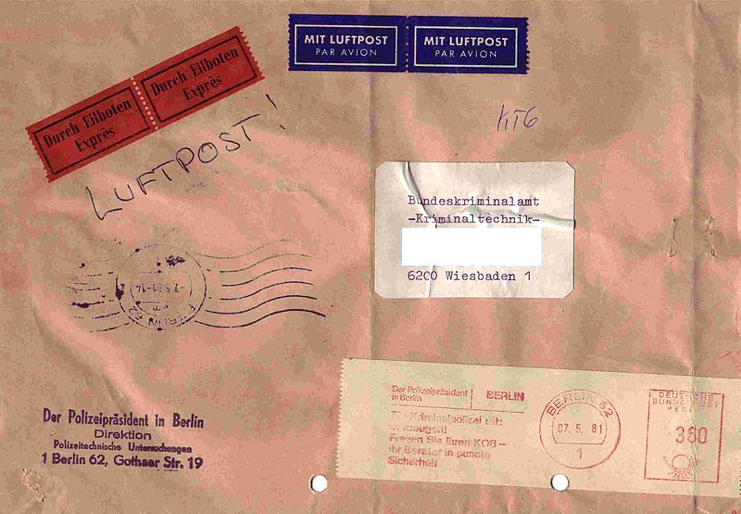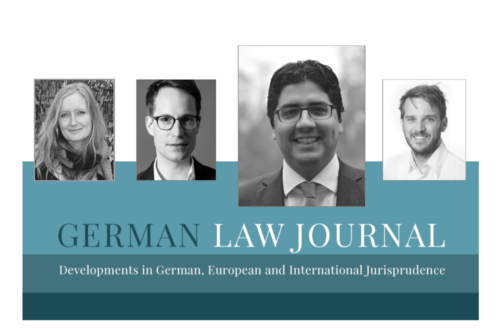
Counter-Terror Law
Constitutional Court to Rule on Counter-Terror Law
GLJ Coverage of Germany’s Counter-Terrorism Regime
The German Law Journal was established not long before the 11 September 2001 terror attacks in the U.S. Unavoidably, our interest in the law’s transnational frame has been particularly marked by the global struggle to combat terrorism. We have covered many dimensions of this complex constellation of issues, including – but by no means limited to – the implications for German law and policy. In that tradition we will publish a case-note in a forthcoming issue reporting on the German Federal Constitutional Court’s seminal decision that responds to challenges to amendments to the Federal Criminal Police Act (BKA Gesetz). The First Senate’s judgement will be announced on 20 April 2016.
The constitutional complaints, brought by a number of current and former Green Party Parliamentarians, challenged amendments to the BKA Gesetz that considerably expanded the authority of the Federal Criminal Police Office to gather intelligence on and conduct criminal investigations regarding terrorist threats in Germany.
The case raises some novel federalism issues because the amendments to the BKA Gesetz were enacted pursuant to the new legislative competences assigned to the Federation as part of the last decade’s comprehensive federalism reform in Germany. In particular, new Article 73(1)[9a] of the Basic Law is at issue. Paragraph 9a gives the Federation the exclusive competence to legislate regarding the Federal Criminal Police Office’s protection “against the dangers of international terrorism when a threat transcends the boundary of one Land, when the jurisdiction of a Land’s police authorities cannot be perceived, or when the highest authority of an individual Land requests the assumption of federal responsibility.”
But the heart of the case involves basic rights challenges to the BKA’s newly acquired authority to engage in human and signals intelligence-gathering in Germany. These include, among other powers, telecommunications surveillance, the use of informants, online searches, and data-mining. Of course, the Court considered these challenges in the long, dark and conflicting shadows cast over Germany by the NSA-Affair, on the one hand, and the recent terrors attacks in Paris and Brussels, on the other hand. It promises to be a profound test of the Constitutional Court’s ability to balance the constitutional commands of liberty and security.
The Court’s decision will join a number of others it has issued in the years since 2001, a period during which Federal Governments led by parties on both ends of the political spectrum (and coalitions of those parties as well) have sought to expand and refine counter-terrorism authority. The Court’s response, especially with respect to the interests in informational privacy that are implicated by the BKA Gesetz amendments, has been measured. In many cases the Court has allowed underlying legislation to stand while demanding that the Government be required to exercise its counter-terror powers more proportionally. The German Law Journal has provided coverage of many of these developments in German law. This includes the remarkable special issue Security, Democracy and the Future of Freedom. Five of the special issue’s twelve articles focus on developments in German law and policy, including Oliver Lepsius’ frequently-downloaded early survey of Germany’s post-9/11 counter-terrorism initiatives and Christoph Safferlilng’s essay examining whether the German criminal law was suited to make a contribution to the struggle against terrorism. Wilhelm Achelpöhler and Holger Niehaus, in their contribution to the special issue, anticipated the question of data-collection and data-mining, which has been a prominent concern for the Federal Constitutional Court. Verna Zöller passionately argued for the rule of law and the integrity of human rights in her contribution to the special issue.
The German Law Journal’s coverage continued, and was brought up-to-date, by a symposium collection published in 2012 under the direction of Christoph Safferling and Arndt Sinn.
The Journal has also published case-notes or commentary on most of the Constitutional Court’s counter-terrorism jurisprudence, including the 2006 Air-Traffic Security Act Case, 2006 decision in the Data-Mining Case, the 2008 Data-Retention Case, and the 2010 Online Search Case.






